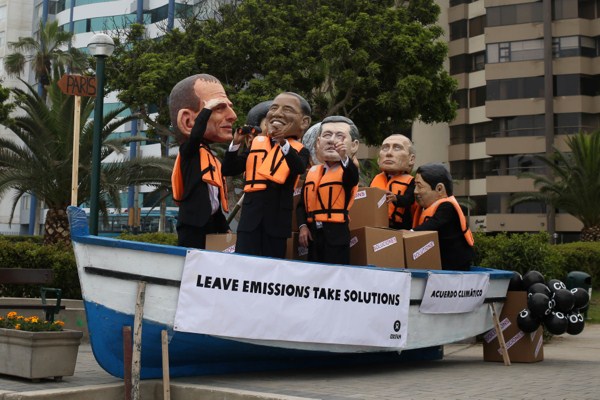LIMA, Peru—Divisions among governments about how to deal with global warming pushed the United Nations Climate Change Conference, known as COP20, nearly two days past its deadline. But the agreement approved in the Peruvian capital in the early hours of Dec. 14 was groundbreaking in that all of the 196 participating nations promised to formulate a plan to reduce their greenhouse gas emissions.
After two decades of negotiations in which developed nations were expected to cut their emissions while the rest got a free pass, that shared commitment is an important step. But it remains to be seen what each government will commit to, and the agreement is vague on how national efforts will be reported, measured or enforced on the global level. Governments are expected to submit plans for their national contributions to a global emissions reduction by March 15 for incorporation into a draft international climate agreement, which should be finalized and approved at COP21, to be held in Paris in December 2015.
Environmental organizations such as Friends of the Earth and 350.org have called the Lima agreement weak and insufficient, and most observers admit that it leaves too much to be resolved in the coming months. Nevertheless, Jennifer Morgan, director of the Climate Program at the World Resources Institute, a research organization, was relatively upbeat. In a statement, she asserted, “As contributions are put forward, peer pressure will grow for countries to be as transparent and ambitious as possible.” She added that the World Resources Institute planned to conduct analyses of each country’s action plan to determine its “level of transparency, ambition and equity.”

